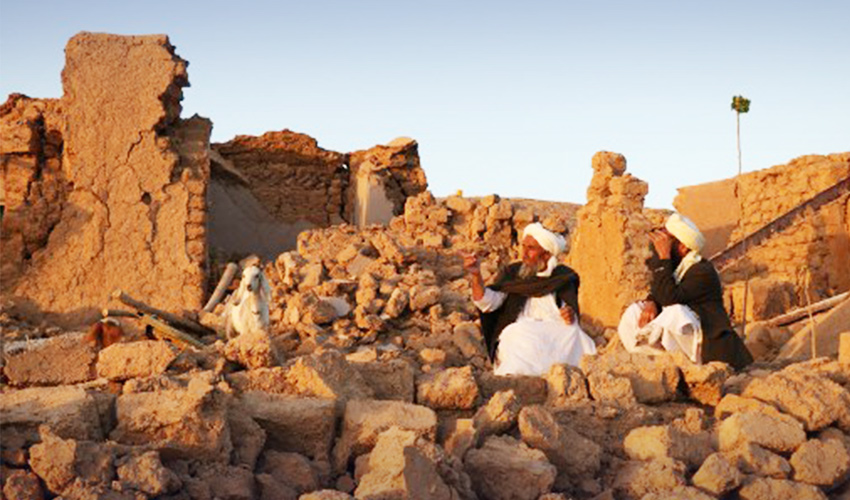The death toll from a series of earthquakes that struck western Afghanistan on Saturday has surged to over 2,000 on Sunday, as rescue teams scramble in search of survivors among debris.
Meanwhile, the Taliban administration claimed the powerful tremors killed more than 2,000 people and injured more than 9,000.
A magnitude 6.3 quake and subsequent eight strong aftershocks hit remote areas of Afghanistan on Saturday, approximately 30 kilometres northwest of the provincial capital of Herat. The quakes destroyed villages as residents ran out on the roads.
"Unfortunately, the casualties are practically very high," deputy government spokesman Bilal Karimi was quoted by AFP as saying early on Sunday, as the extent of the damage became clear.
"The death toll is more than 2,000 people. We are waiting to see how the final figures will turn out," he added.
On the other hand, Mullah Janan Sayeeq, a spokesman for the country’s Ministry of Disasters, was quoted by Reuters as having said that 2,053 people were dead, 9,240 injured and 1,329 houses damaged or destroyed.
In the village of Sarboland in the Zinda Jan district, homes were left in ruins near the quake's epicentre.
Men sifted through debris, while women and children took refuge in the open. The World Health Organization (WHO) reported over 600 houses destroyed or partially damaged across at least 12 villages in Herat province, affecting around 4,200 people.
"In the very first shake, all the houses collapsed," 42-year-old Bashir Ahmad told AFP. "Those who were inside the houses were buried."
Nek Mohammad said when he got back from work after the first quake that struck at around 11am, he saw that "actually there was nothing left. Everything had turned to sand", adding that some 30 bodies had been recovered.
"So far, we have nothing. No blankets or anything else. We are here left out at night with our martyrs," he said.
The WHO said late on Saturday that the number of casualties was "expected to rise" as search and rescue operations were underway.
While Herat city experienced evacuations and panic, casualties in the metropolitan area remained relatively low.
Earthquakes are not uncommon in Afghanistan, particularly in the Hindukush mountain range, situated at the convergence of the Eurasian and Indian tectonic plates.
Last year in June, a 5.9-magnitude quake struck the impoverished Paktika province, resulting in over 1,000 deaths and leaving tens of thousands homeless — marking the deadliest earthquake in the country in nearly 25 years.



























